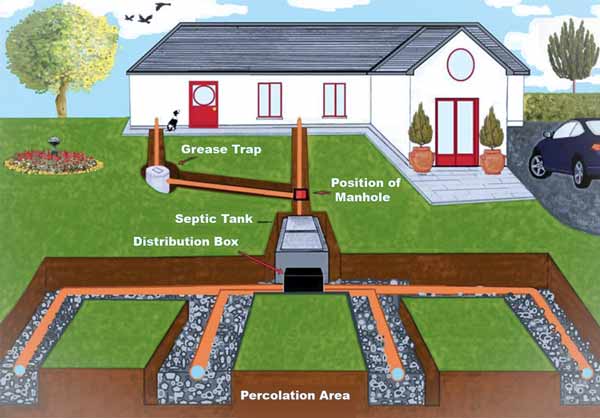Can A Leach Field Be Too Deep? Exploring Depth Limits For Effective Septic Systems
Another Failed System
Keywords searched by users: Can a leach field be too deep minimum depth of septic tank, how deep is septic tank, what does a leach field look like, drain field size for 2 bedroom house, how far does a septic drain field have to be from the house, leach field size for 4 bedroom, distance between leach lines, does a leach field need to be below the frost line
What Is The Maximum Depth Of A Septic Leach Field?
The maximum depth of a septic leach field, which is an essential component of a septic system, can vary based on local regulations and soil conditions. These leach fields are strategically positioned within your property, usually in a spacious, level, and unobstructed area. The depth of the trenches in a leach field can range from 18 to 36 inches, but it’s important to note that local codes and soil characteristics might dictate specific depth requirements. Each trench typically spans one to three feet in width and can extend up to 100 feet in length. Additionally, there is generally a spacing of around six feet between each trench, allowing for effective wastewater distribution and absorption into the surrounding soil. It’s crucial to consult with local authorities or septic system experts to ensure compliance with regulations and optimal performance of your septic leach field.
What Happens When Leach Field Is Full?
When a leach field becomes full, several undesirable consequences can occur, posing risks to both your property and the environment. One primary issue is the potential for sewage backups within your home, which can lead to costly and unsanitary clean-up efforts. Additionally, you may notice unpleasant septic odors emanating from the area around the leach field, making your outdoor space less enjoyable. Another concern is the possibility of sewage leakage onto your lawn, creating an unsightly and unhygienic mess. Furthermore, a full leach field can contribute to groundwater contamination, which can have serious implications for both local ecosystems and public health. Therefore, it’s crucial to address and resolve a full leach field promptly to prevent these problems and protect your property and the environment.
What Can Ruin A Leach Field?
What factors can potentially harm a leach field? Leach fields, which are vital components of septic systems, can face several threats that may compromise their functionality and lifespan. Excessive water usage within the household, often caused by leaking toilets and drains, can overload the leach field’s capacity to absorb and treat wastewater effectively. Additionally, construction activities or the passage of vehicles over the field can cause physical damage, leading to structural issues. Heavy rainfall or melting snow can introduce excessive water runoff into the leach field, which can overwhelm its capabilities. Furthermore, tree and plant roots have the potential to infiltrate and obstruct the pipes, hampering the proper flow of wastewater. These various factors collectively contribute to the deterioration of leach fields, posing a risk to their long-term performance and efficiency. [Date: March 15, 2019]
Summary 27 Can a leach field be too deep


Categories: Top 12 Can A Leach Field Be Too Deep
See more here: maucongbietthu.com

Learn more about the topic Can a leach field be too deep.
- Can a septic tank be installed too deep?
- What Is a Leach Field? – Mr. Rooter Plumbing
- How to unclog your leach field | A quick, easy and septic-safe way
- Leach Field Maintenance: Common Issues & Best Practices
- 19.28.180 Leach line system requirements.
- How Big Is a Septic Tank? Septic Tank Sizes and Shapes